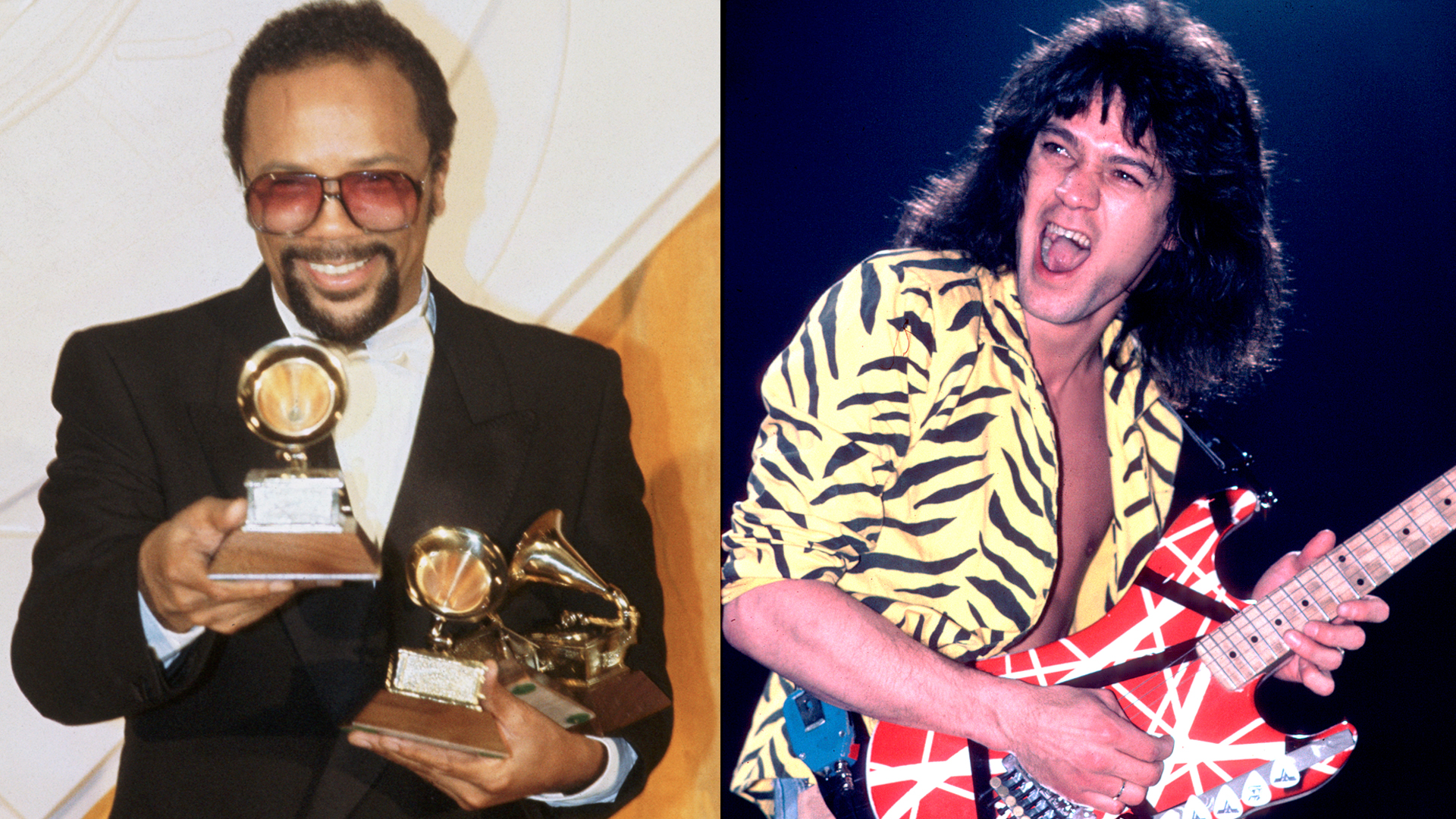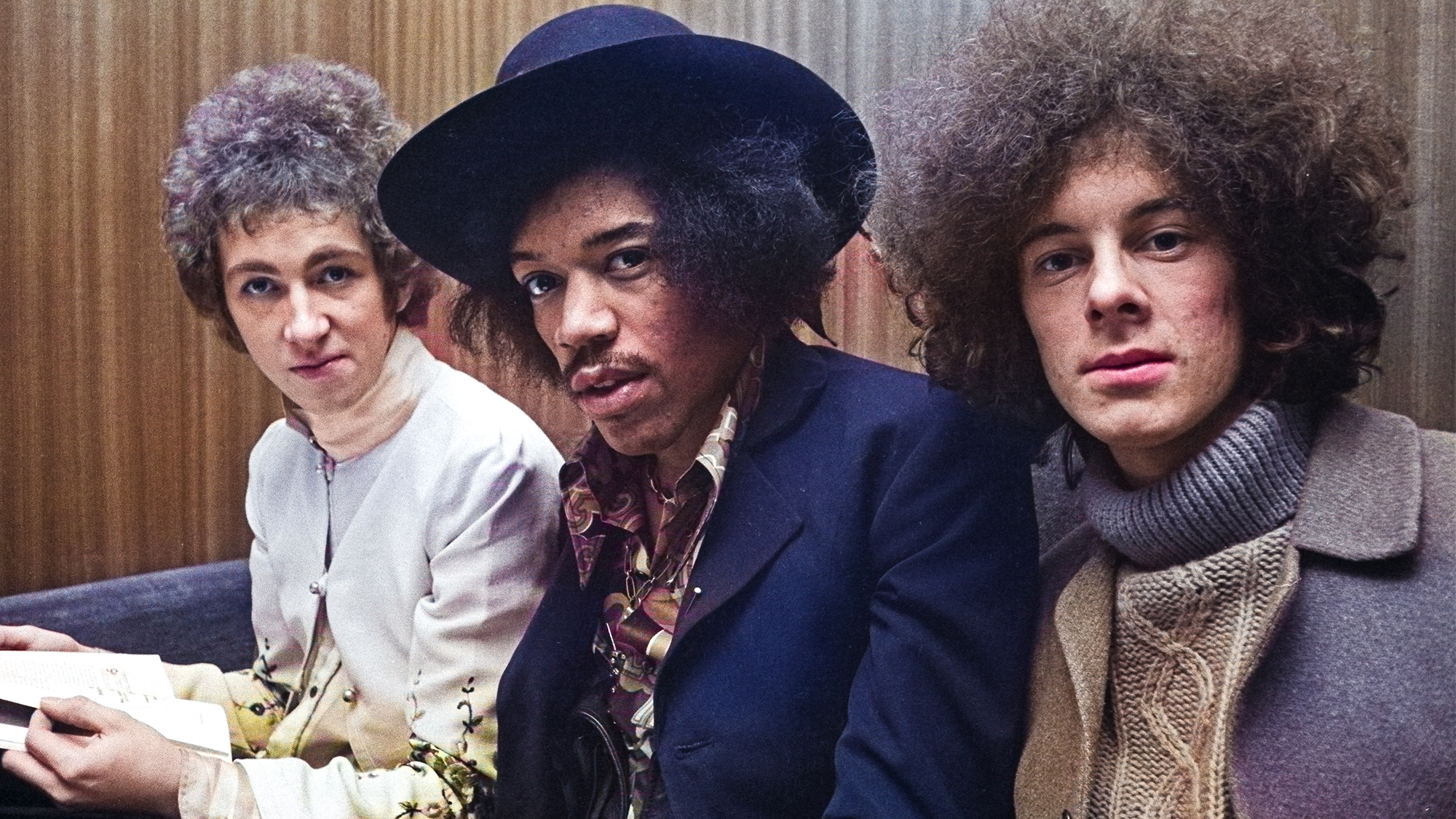"Even though it took a couple calls to convince you it was actually me on the phone, you killed it." Quincy Jones, who died Sunday, never forgot his infamous phone call with Eddie Van Halen or the hit track they created
The celebrated producer was also behind George Benson's Grammy-winning album 'Give Me the Night'

Quincy Jones didn’t produce many guitarists over his star-studded 70-year career. Of the numerous artists he worked with, the great George Benson stands out as one of the few — Jones helmed his Grammy-winning 1980 album Give Me the Night.
But Jones, who died at age 91 in Los Angeles on November 3, made his most memorable mark in the guitar world with one particular recording: Michael Jackson’s 1983 hit “Beat It,” on which Eddie Van Halen performed one of his most iconic guitar solos.
It was Jones who had the honor of calling Van Halen to request his presence on the track. And it earned him a shocking reply from the guitarist, who assumed he was the victim of a prank call.
“I went, ‘What do you want, you f-ing so-and-so!,’” Ed recounted to CNN in a 2012 interview. “And he goes, ‘Is this Eddie?’ I said, ‘Yeah, what the hell do you want?’ ‘This is Quincy.’
"I’m thinking to myself, I don’t know anyone named Quincy.”
Once the confusion was sorted out, Ed agreed to play on the track, although he was more than a little curious about Jackson's musical direction. At the time, he knew the singer only from his work as a child performer in the Jackson Five. “I’m thinking to myself, Okay, ‘ABC, 1, 2, 3’ and me,” he told CNN, referring to the vocal group’s 1970 hit single “ABC.” “How’s that going to work?”
Nevertheless, Ed showed up at the appointed time with a custom amp he borrowed from his friend the guitarist Allan Holdsworth, his Frankenstein guitar and an Echoplex tape delay.
All the latest guitar news, interviews, lessons, reviews, deals and more, direct to your inbox!
It was evidence of Jones’ celebrated supportive approach that he gave Ed carte blanche to do as he saw fit. After an initial run through, Ed took advantage of that offer by requesting an edit to achieve the melodic framework he wanted. The engineer on the session was Donn Landee, Ed’s own longtime engineer, and he was happy to oblige.
“I go, 'Okay, from the breakdown, chop in this part, go to this piece, pre-chorus, to the chorus, out,’” Ed recalled to CNN. “Took him maybe 10 minutes to put it together. And I proceeded to improvise two solos over it.”
Ed has been much in the news lately, thanks to The Journey to Frankenstein, a new documentary detailing his guitar journey leading to the creation of the Frankenstein Superstrat and his line of EVH electric guitars and amplifiers. In addition, Eddie's brother, Alex, has issued his autobiography, Brothers, in which he reflect on their relationship and work in Van Halen.
Jones would make a reference to his phone call with Eddie when he paid tribute to Van Halen following the guitarist's death in 2020. “Even though it took a couple calls to convince U it was actually me on the phone :) U killed it on Thriller, & your classic guitar solo on Beat It will never be matched. I’ll always smile when I think of our time working together.”
The producer’s work with George Benson was another guitar highlight in his long career. Their album, Give Me the Night, was the first for Jones’ label, Qwest. In addition to winning three Grammys for Benson — Best Male R&B Vocal Performance, Best Jazz Vocal Performance, Male (for “Moody’s Mood”) and Best R&B Instrumental Performance (for “Off Broadway”) — it earned Jones the Grammy Award for Best Instrumental Arrangement for the “track Dinorah, Dinorah."
Christopher Scapelliti is editor-in-chief of GuitarPlayer.com and the former editor of Guitar Player, the world’s longest-running guitar magazine, founded in 1967. In his extensive career, he has authored in-depth interviews with such guitarists as Pete Townshend, Slash, Billy Corgan, Jack White, Elvis Costello and Todd Rundgren, and audio professionals including Beatles engineers Geoff Emerick and Ken Scott. He is the co-author of Guitar Aficionado: The Collections: The Most Famous, Rare, and Valuable Guitars in the World, a founding editor of Guitar Aficionado magazine, and a former editor with Guitar World, Guitar for the Practicing Musician and Maximum Guitar. Apart from guitars, he maintains a collection of more than 30 vintage analog synthesizers.

